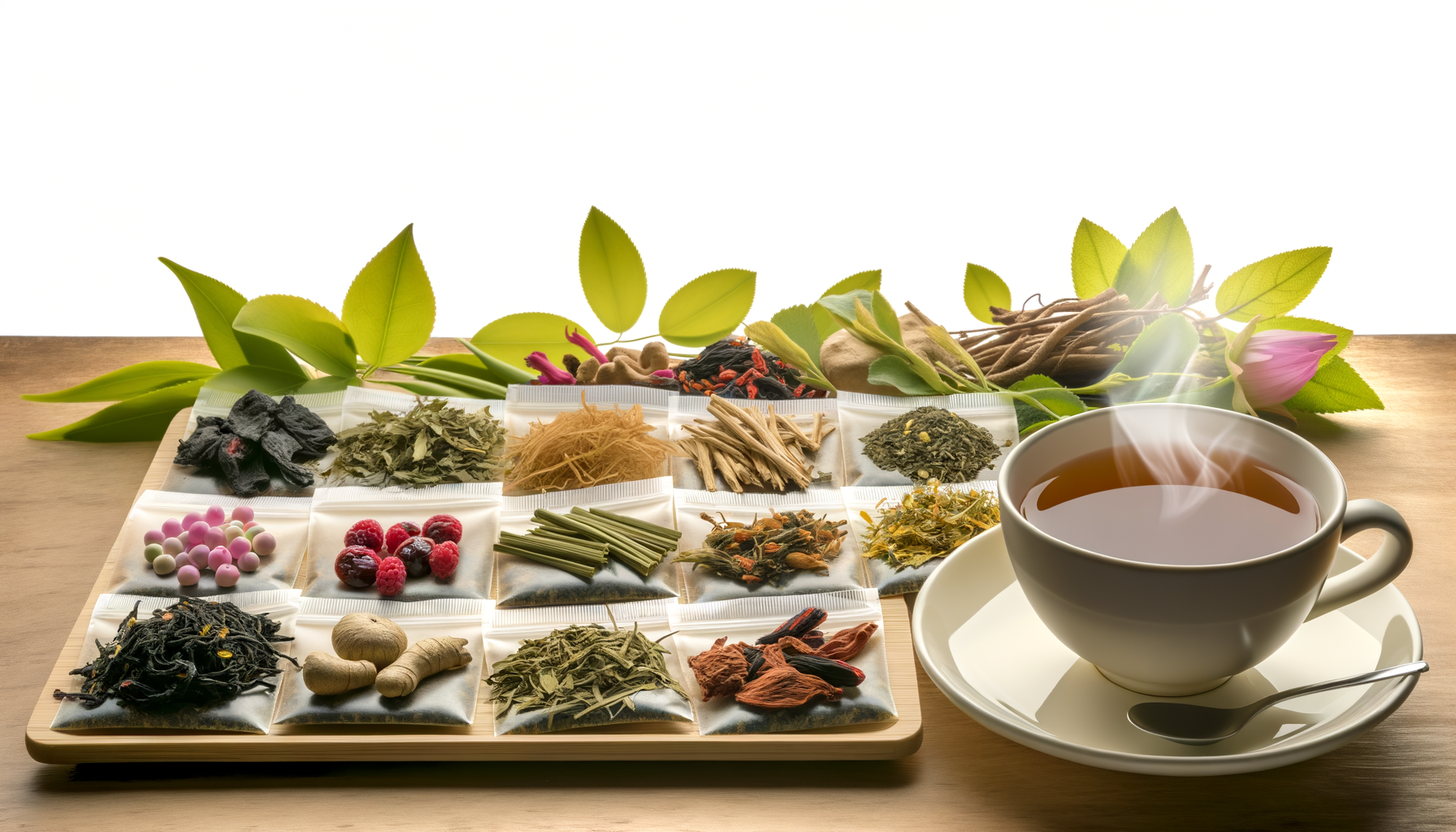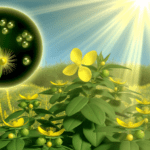Menopause marks a significant transition in a woman’s life, typically occurring in the late 40s to early 50s. It signifies the end of menstrual cycles and reproductive fertility. Menopause is clinically diagnosed after a woman has gone 12 consecutive months without a menstrual period. Symptoms vary widely among individuals but often include hot flashes, night sweats, mood swings, sleep disturbances, and vaginal dryness. These symptoms result from the body adjusting to decreasing levels of estrogen and progesterone.
The Transition: From Perimenopause to Menopause
Perimenopause is the transitional phase leading up to menopause, where hormonal fluctuations become more pronounced. This period can last for several years and is characterized by changes in menstrual cycle regularity, intensity, and duration. Women may begin to experience menopausal symptoms during perimenopause, although they are still menstruating, albeit irregularly. Understanding this transition is crucial as it prepares women for the physical and emotional changes associated with menopause.
Common Misconceptions About Menopause
Despite being a natural biological process, menopause is often misunderstood. A common misconception is that menopause leads to a decline in sexual function or desire, but many women report stable or even increased sexual satisfaction post-menopause. Another myth is that menopause invariably causes severe emotional distress; while some women do experience mood swings and irritability, others may feel relief or newfound freedom. It’s also often believed that menopause happens suddenly, when in reality, it is a gradual process. Dispelling these myths is essential for a more informed and positive outlook on menopause.
Natural Remedies for Menopause Symptoms
The Role of Herbal Teas in Managing Symptoms
Menopause is a natural transition in a woman’s life, often accompanied by uncomfortable symptoms such as hot flashes, night sweats, mood swings, and sleep disturbances. Herbal teas have been used for centuries to alleviate various health issues, and they play a significant role in managing menopausal symptoms. These teas contain phytoestrogens, natural plant compounds that mimic the effects of estrogen in the body, potentially helping to balance hormone levels and reduce symptoms. Additionally, certain herbs have properties that can address specific menopausal concerns, such as promoting relaxation to improve sleep quality or supporting bone health.
Benefits of Choosing Natural Remedies
- Safety Profile: Herbal teas generally have a favorable safety profile, especially when compared to pharmaceutical options, which may carry more significant risks or side effects.
- Accessibility: Many herbal teas are readily available and can be easily incorporated into daily routines.
- Cost-Effectiveness: Natural remedies like herbal teas are often more affordable than prescription medications.
- Complementary Treatment: Herbal teas can be used in conjunction with other natural remedies or lifestyle changes to create a holistic approach to symptom management.
Limitations and Considerations of Natural Treatments
While herbal teas offer many benefits, there are limitations and considerations to keep in mind:
- Variability in Potency: The concentration of active ingredients in herbal teas can vary, affecting their efficacy.
- Limited Research: Some herbal remedies lack extensive scientific research to fully understand their impact on menopause symptoms.
- Interactions with Medications: Certain herbs may interact with prescription medications, so it’s crucial to consult with a healthcare professional before starting any new herbal regimen.
- Quality Control: The quality of herbal products can differ between brands and batches, emphasizing the importance of choosing reputable sources.
Ultimately, while herbal teas can be a valuable part of managing menopause symptoms, they should be used thoughtfully and in consultation with healthcare providers to ensure safety and effectiveness.
Analyzing the Efficacy of Different Teas for Menopause
Criteria for Selecting Teas for Menopause Relief
When selecting teas to alleviate menopause symptoms, several criteria should be considered. Firstly, the tea should contain ingredients known to have a cooling effect or regulate hormones. Secondly, the tea should be free from substances that might exacerbate symptoms, such as caffeine, which can trigger hot flashes. Thirdly, the tea should have a history of traditional use or scientific backing for its efficacy in managing menopausal symptoms. Lastly, the tea should be palatable and easily incorporated into a daily routine, ensuring consistent consumption for maximum benefit.
Review of Scientific Studies on Herbal Teas and Menopause
Scientific studies have explored the impact of various herbal teas on menopause symptoms. Black cohosh, for instance, has been widely studied and is often used to treat hot flashes and insomnia. Research suggests that its effectiveness may be attributed to its ability to bind to estrogen receptors. Red clover contains isoflavones, which are structurally similar to estrogen, but studies have shown inconsistent results regarding its impact on hot flashes and bone density. Panax ginseng and valerian have shown potential in managing hot flashes and improving sleep quality, respectively, although further research is necessary. Sage and St. John’s wort have also been studied, with some evidence suggesting benefits for concentration and reductions in panic and fatigue.
Pros and Cons of Popular Teas for Menopause Symptoms
- Black Cohosh Root: Pros include evidence of relief for hot flashes and insomnia. Cons are potential liver issues and mild gastrointestinal side effects.
- Ginseng: Pros are its anti-inflammatory properties and hormonal effects. The main con is the common side effect of insomnia.
- Chasteberry Tree: Pros include benefits for hormonal health. However, it should be used with caution due to potential interactions with medications.
- Red Raspberry Leaf: Often used for menstrual flow regulation, but there is limited research on its efficacy for menopause symptoms.
- Red Clover: Contains phytoestrogens which may help with menopause. However, inconsistent study results and potential side effects are cons.
- Dong Quai: Pros are hormonal balance and symptom relief, but there is no conclusive evidence to support its effectiveness.
- Valerian Root: May improve sleep quality and reduce hot flashes, but side effects and lack of evidence for efficacy are drawbacks.
- Licorice: Pros include respiratory health benefits and stress reduction, but long-term use can increase the risk of developing health conditions like cardiovascular disease.
- Green Tea: Rich in antioxidants and may support bone health, but its caffeine content could trigger hot flashes in some women.
- Ginkgo Biloba: Might help with mood and PMS symptoms, but can cause headaches and interact with medications.
It is important to note that while some teas offer promising benefits for managing menopause symptoms, they are not without risks. Interactions with medications and potential side effects must be carefully considered. Consulting with a healthcare professional before starting any new tea regimen is crucial for safety.

Bette 100% All-Natural Relaxing Lavender Body Lotion.
Chemical-Free
Your relaxing night time body moisturizer to leave the day’s stress behind. Decompress and wish your body good night with the calming scent of lavender.
Detailed Examination of Top Teas for Menopause
Black Cohosh Root: A Closer Look
Black cohosh root has been traditionally used to alleviate menopausal symptoms, particularly hot flashes and mood swings. Studies suggest that it may work by mimicking the effects of estrogen in the body, which can be beneficial as estrogen levels decline during menopause. However, it should be used with caution, especially in individuals with liver issues or those taking medications for blood pressure.
Ginseng’s Impact on Menopausal Health
Ginseng, particularly Panax ginseng, has shown promise in reducing the severity of hot flashes and improving sleep quality. It may also have a positive effect on bone health and cardiovascular risk factors in postmenopausal women. However, ginseng can interact with several medications, so it’s important to consult with a healthcare provider before use.
Chasteberry Tree: Benefits and Cautions
The Chasteberry tree, or Vitex agnus-castus, is known for its potential to balance hormones, particularly by increasing progesterone levels. This can be helpful during the perimenopausal transition. However, it should not be taken by those using hormonal contraceptives or hormone replacement therapy, and it may interact with certain medications like antipsychotics.
Red Raspberry Leaf and Menstrual Flow
Red raspberry leaf tea is often recommended for its uterine toning properties and may help manage heavy menstrual flows associated with perimenopause. It is rich in vitamins and minerals, but it may have diuretic and laxative effects in some individuals.
Red Clover: Phytoestrogens and Menopause
Red clover contains isoflavones, a type of phytoestrogen that may help manage menopausal symptoms like hot flashes and night sweats. While generally safe, it can cause mild side effects and may not be suitable for individuals with a history of hormone-sensitive conditions.
Dong Quai: Hormonal Balance and Symptom Relief
Dong quai is often used in traditional Chinese medicine to support hormonal balance and may help alleviate hot flashes. However, it can increase photosensitivity and may interfere with blood clotting, so caution is advised, especially prior to surgery.
Valerian Root: Sleep Quality and Hot Flashes
Known for its sedative properties, valerian root may improve sleep quality and reduce the frequency of hot flashes. It’s generally considered safe as a tea, but long-term use and interactions with alcohol should be avoided.
Licorice: Respiratory Health and Stress Reduction
Licorice tea may help manage hot flashes and has potential benefits for respiratory health and stress reduction. However, excessive consumption can lead to issues like high blood pressure and should be avoided by those with certain health conditions.
Green Tea: Bone Health and Antioxidant Properties
Green tea is rich in antioxidants and has been linked to improved bone health, which is a concern for many menopausal women. It also contains caffeine, which may affect sleep patterns, so moderation is recommended.
Ginkgo Biloba: Mood and PMS Symptom Management
Ginkgo biloba may help with mood regulation and PMS symptoms due to its phytoestrogen content. While it can be beneficial, it may also cause allergic reactions in some individuals and interact with medications that affect blood clotting.
It’s important to note that while these teas can offer relief, they are not a substitute for medical treatment and should be used in conjunction with a healthcare provider’s advice. Additionally, the quality and source of the herbs are crucial for their efficacy and safety.

Feeling You Have a Right to Safe Beauty & Fem Care?
If so, it may be time for a change. It starts with knowledge. We have a few suggestions in our new guides.
Safety and Side Effects of Herbal Teas
Understanding Potential Risks and Interactions
While herbal teas are widely regarded as natural and safe remedies for various health conditions, including menopause symptoms, they are not without potential risks and interactions. It is essential to recognize that “natural” does not always equate to “harmless.” Some herbal teas contain active compounds that can interact with prescription medications, over-the-counter drugs, and other herbs. For instance, teas containing St. John’s Wort are known to interact with a wide range of medications, potentially diminishing their effectiveness or causing adverse effects. Similarly, licorice root can affect blood pressure and potassium levels, making it unsuitable for individuals with certain cardiovascular conditions.
Herbs such as black cohosh and ginseng may also have hormone-like effects, which could be problematic for those with hormone-sensitive conditions or those taking hormone replacement therapy. It is crucial to conduct thorough research or consult with a healthcare professional before incorporating any new herbal tea into your regimen, especially if you have pre-existing health conditions or are on medication.
Guidelines for Safe Consumption of Herbal Teas
To safely enjoy the benefits of herbal teas for menopause symptoms, consider the following guidelines:
- Always start with a small amount to test for any allergic reactions or sensitivities.
- Follow the recommended brewing instructions and avoid excessive consumption, as higher doses do not necessarily equate to greater benefits and may increase the risk of side effects.
- Choose high-quality, organic teas from reputable sources to minimize exposure to pesticides and contaminants.
- Be mindful of the timing of tea consumption, as some teas may have stimulating effects or diuretic properties that could disrupt sleep if consumed too close to bedtime.
- Keep track of your symptoms and any changes you notice while consuming the tea, and adjust your intake accordingly.
When to Consult a Healthcare Professional
It is advisable to consult a healthcare professional in the following situations:
- If you are currently taking any medications, to ensure there are no potential interactions with the herbal teas you intend to consume.
- Before undergoing any surgical procedures, as some herbs can affect blood clotting and increase the risk of bleeding.
- If you experience any adverse effects after consuming herbal teas, such as gastrointestinal discomfort, headaches, or allergic reactions.
- If you have a history of hormone-sensitive conditions, such as breast cancer, or if you are undergoing hormone replacement therapy.
- For personalized advice on the appropriate types and amounts of herbal teas that may be beneficial for your specific menopause symptoms.
In conclusion, while herbal teas can be a comforting and natural way to manage menopause symptoms, it is important to approach their use with caution and awareness of their potential risks. By following safe consumption practices and seeking professional guidance when necessary, you can make informed decisions that support your health and well-being during menopause.
By the way, something for you, a little gift!!!
I am just in the middle of publishing my book. It’s about How women can balance their hormones. One part is about food and diet, of course.
Follow this link and enter your email.
I will send you this part of the book for free once the book is published. It has many concrete, practical tips and recipes and will help you feel better during menopause or times of Big hormonal fluctuations.
Annette, Damiva Lead for Health & Wellness

Integrating Tea Consumption into Menopause Management
How Often to Drink Tea for Symptom Relief
For many women navigating the challenges of menopause, the frequency of tea consumption can play a crucial role in symptom management. While individual responses may vary, a general guideline is to enjoy herbal teas 2-3 times daily. This regular intake can help maintain a consistent level of beneficial compounds in the body. For instance, starting the day with a cup of ginger tea can aid digestion, while sipping on chamomile or valerian root tea in the evening may promote better sleep quality. It’s important to listen to your body and adjust the frequency and timing of tea consumption to suit your specific needs and symptom patterns.
Choosing the Right Tea for Hormonal Balance
Selecting the right tea can be pivotal in managing menopausal symptoms effectively. Teas containing phytoestrogens, such as red clover, may help balance hormone levels due to their estrogen-like effects. However, it’s essential to consider personal health history and consult with a healthcare professional before integrating these teas into your routine. For overall hormonal support, non-estrogenic herbs like black cohosh and dong quai have been traditionally used to alleviate symptoms like hot flashes and mood swings. Remember, the goal is to find a tea that provides relief without introducing unwanted side effects.
Complementary Practices for a Holistic Approach
Tea consumption is just one aspect of a holistic approach to managing menopause symptoms. Incorporating other practices such as regular exercise, stress-reduction techniques (like meditation or yoga), and a balanced diet can enhance the benefits of herbal teas. Additionally, ensuring adequate intake of calcium and vitamin D is vital for bone health, while omega-3 fatty acids from fish or flaxseeds can support cardiovascular health. It’s also beneficial to establish a consistent sleep routine and engage in social activities that foster emotional well-being. By combining these practices with mindful tea consumption, you can create a comprehensive plan for navigating menopause with greater ease and comfort.

Conclusion and Further Considerations
Summary of Key Findings
In our exploration of natural remedies for menopause symptoms, we have identified a range of herbal teas that offer relief from hot flashes, mood swings, sleep disturbances, and other common issues associated with this transitional phase in a woman’s life. From the soothing properties of Black Cohosh Root to the hormone-balancing effects of Ginseng and the calming influence of Valerian Root, each tea presents its own set of benefits and potential side effects. It is clear that these natural remedies can play a significant role in managing menopause symptoms, offering a gentler alternative to conventional hormone replacement therapies.
Future Directions in Research and Treatment
While the current body of research provides promising evidence for the efficacy of herbal teas in managing menopause symptoms, further studies are needed to fully understand the long-term effects and optimal dosages. Future research should focus on large-scale, randomized controlled trials to establish standardized guidelines for the use of these teas. Additionally, the exploration of synergistic effects between different herbs and the development of new blends tailored to individual symptoms could offer more personalized treatment options for menopausal women.
Final Thoughts on Managing Menopause Naturally
Managing menopause is a deeply personal journey, and the choice of remedies should align with one’s lifestyle, health status, and preferences. Herbal teas, with their rich history and cultural significance, offer a natural and holistic approach to symptom management. However, it is crucial to approach their use with caution, recognizing that natural does not always mean risk-free. Consulting with healthcare professionals, particularly when other medications are involved, is essential to ensure safety and efficacy. Ultimately, integrating these teas into a broader lifestyle strategy that includes a balanced diet, regular exercise, and stress reduction techniques can provide comprehensive support during menopause. Embracing this natural transition with knowledge, care, and a cup of soothing tea can help women navigate menopause with grace and well-being.










